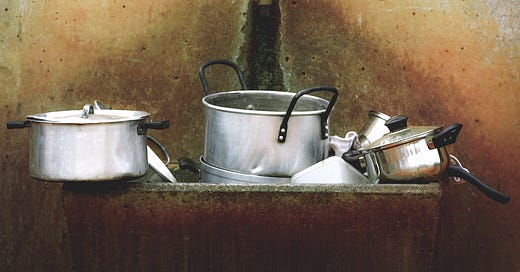The story of Mary and Martha in Luke 10:38-42 has always rubbed me the wrong way. I’ve struggled over this very piece for months and feel like these women’s interactions with Christ still have a great deal more to teach me. My recent studies have honed in on the actual structure of what Christ invited Mary and Martha into: the study of a rabbinic student. This student of theology role was previously only open to Jewish men; Christ inviting women into this discussion was groundbreaking for social customs, gender norms, and theological precedent.
While I can understand the empowerment that comes from Christ’s inclusion of Mary and Martha to study at His feet, I still struggle over poor Martha doing all the work and being faulted for choosing the lesser option. A fact which doubtlessly reflects on my own posture towards accomplishment. Yet, for some reason this scene of Martha working tirelessly for the disciples, brought to mind the foot washing scene in John.
In John 13:1-17, we learn that Christ washed the feet of the disciples at the Last Supper. After traveling miles in sandals in the Middle East, feet were caked in dirt and grime and required washing. Meals at this time were eaten at low tables while reclining so your feet were significantly more on view and at a closer proximity than today – emphasizing the need for a thorough scrub.
Christ was a man who knew the importance of humble work. He never turned someone away due to lack of prestige; in fact, He called to his side fishermen, children, women, and beggars. He drew near to those laboring and knew the importance of gathering food and feeding those in your care. So how do I unite these two snapshots of Christ?
I believe that Christ’s response that Mary “chose what was best” was due to the fact that He was right there, and Martha was missing it. We will always have chores to accomplish, dishes to wash, laundry to fold; and while Christ encompasses all that is needed, most of us lack the luxury of quiet contemplation day in and day out.
Jesus understood this. He desired Martha’s full attention right at that moment, while He was present in her home; but I believe that He also modeled care for others and knew Martha couldn’t sit at His feet indefinitely. Christ gently shows us times in our life when He is asking us to give Him our full attention, our whole hearts, our focused minds. But there will also be times of washing feet, of multiplying food for the five thousand, of caring in tangible ways for those we love.
Saint Teresa of Avila is credited to have written, “God walks among the pots and pans” when she was encouraging her fellow sisters to engage with earthly as well as spiritual duties. We can find balance in knowing God is always present with us, when washing dishes and when sitting in contemplation. While Christ knew the sacrifice of chores, He also desired us to understand the importance of dedicating time to learn from Him, to soak in our belovedness, and to feel empowered to sit at His feet. My heart longs for both of these aspects of Christ and the beauty of their importance together.
I believe that Lent encompasses one of those times when we are called to sit and listen, when we put aside the hustle and bustle of our to-do list and reflect wholly on the power of Christ’s sacrifice. Practices of fasting, charity, and prayer remind us to choose what is best in this moment. The beautiful Maundy Thursday service includes the washing of the feet to remind us of the importance of humble service and daily tasks, and that Christ himself modeled this servant leadership. Christ is there with you throughout your daily chores, He honors the work you do for others, and He asks for time with your whole heart and mind. As we enter Holy Week, I pray that we can each carve out that time to sit at His feet, to rest, to feel His love, and to embrace the God who calls us beloved regardless of the state of our dishes.
If you enjoyed this piece, would you consider sharing it with a friend or on social media?
Recommendations
Fittingly for this post, The Kitchen Prayer by Klara Munkres. I stumbled across this while researching Teresa of Avila’s quotation and love every word.
Following this theme, Be A Heart has a beautiful dish towel (which is currently hanging on my oven) which reads “God Walks Among the Pots and Pans.”
Catherine Sullivan wrote a beautiful piece about how J.R.R Tolkien’s essay ‘On Fairy Stories’ informs our reading, experience of formative literature, and connects to this upcoming Holy Week. It’s lovely, pertinent, and reminded me of one of my favorite books while in those sweet in between years of childhood and teen!
Last but certainly not least, my friend Mary Beth Keenan wrote for Wisdom’s Dwelling on ‘Wintering as a Tree’ and its one of those pieces that I know I’ll return to again and again to soak up the goodness and truth within.
Coming Up Soon
In her month of May, I plan to write on Mary and how motherhood has shaped that relationship.
Subscribe below to ensure you receive the reflections delivered straight to your email.





